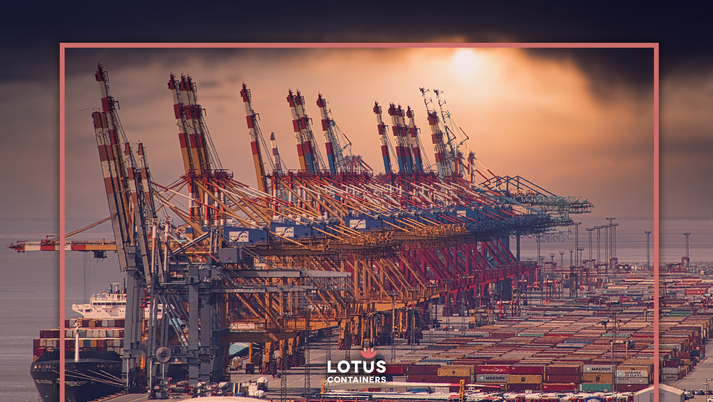The container industry and shipping industry continues to keep witnessing chaotic situations. Firstly the lockdown in the world due to the pandemic, then long queues at twin ports of Los Angeles and Long Beach, then the Suez Canal Crisis then closure of Yantian port due to pandemic closure, such scenarios have put the shipping container industry, shipping industry, global supply chain, and world trade on turmoil.
The whole world came to standstill when the pandemic came in 2019. The world trade of other than necessary goods was on total hold, thus bouncing the world trade. In another incident, the twin ports of Los Angeles and Long Beach saw a long line of container vessels waiting. When combined, both the ports saw a record of 1.9 million freight containers lying idle at the ports.
Then, when the world was trying to restart the continuum, the supply chain received a new blow by the Suez Canal incident. In the incident, the Japanese-owned ship Ever given got stuck in the Suez Canal for six days. The Suez Canal is an artificial waterway in Egypt through which the Mediterranean Sea and the Red Sea connect. With the ship, many shipping container vessels went idle lining up behind it. This incident affected the world as thousands of cargo containers were on hold with the container ship thus hampering the supply chain a lot.
When the world was trying to get some respite from the situation, the Yantian port, which is one of the largest ports in the world had also been forced to join the bandwagon, by closing the port to avoid the Coronavirus from spreading. Though the port opened in June, the harm on it is deeply visible. And the world is not going to see relaxation sometime soon.
One might think that situation is local and will be fine soon. But you will be surprised to know that the container rates are touching a new high. Asia-Europe container rates have set the record high of $10000 per 40ft shipping container. Now, we may understand the gravity of the situation and how it is going to take years to become normal. The shipping container industry and container shipping industry is not just an industry, it is an industry that has been running so smoothly that despite low container rates, the container providers and carriers used to see huge profits. But now with the heavy blows, it will take time to come back on the right track.
Earlier the ships used to sail in the ports with a large number of shipping containers in the morning and then go back on the voyage bearing the new loaded metal containers in the evening. One of the major reasons have been the locations of containers as before and during the pandemic to gain more profits and to provide the goods on time, the vessels used to leave the empty containers at the ports. Despite trying for empty container positioning, they would start a new journey. This has led to a surfeit of steel containers in European countries and paucity in Asian countries. Thus, the container rates have touched the new whooping high.
This imbalance has already started showing its effect by the sudden jump in prices of storage units, higher container shipping rates, and will take time to come back to normal. Now to fulfill the container needs, the shippers are transporting the empty containers on the vessel at unusually higher rates. But the world will see the problem rise again when the containers reach their respective places. Why? This will be so as loading them for new voyages will take months or say years.
Though everyone blames COVID for the shipping container shortage, the world has started seeing the shortages way before it. The trade war by the US Government during the reign of Donald Trump has affected the movement of freight containers since late 2018, which started seeing some ease since the start of the current year. To provide the full movement to the cargo containers the new ships need to be built that take years to build. Earlier the carriers or suppliers would order the ships to travel faster in order to cope with the delays and scarcity of maritime shipping containers. But that case will not be there anymore. As the ships are going to come with ultrafast speed mechanisms of around 18-19 knots. So, overcoming the hiatus may not be so easy anymore and will take totally different plans.
Just like the waves, the shipping industry keeps seeing some ups and downs from time. But as the life curve goes on so will the shipping and shipping container industry functioning will keep going on. The shipbuilding companies will be more at work as they have to meet up the demands of supplying the industry. They are going to come up with more adequate vessels so that the shipping containers keep voyaging. As if the cargo container goes on hold, the whole world trade will eventually go on hold.
The world trade will keep booming as the patterns that it is seeing now are totally different. The people’s changing behavior of buying goods has led the containers to move and so has moved world trade. How chaotic the situation is today, the world will see relief in a few years. It will enhance the whole global world trade to a large extent with the help of the shipping industry.




